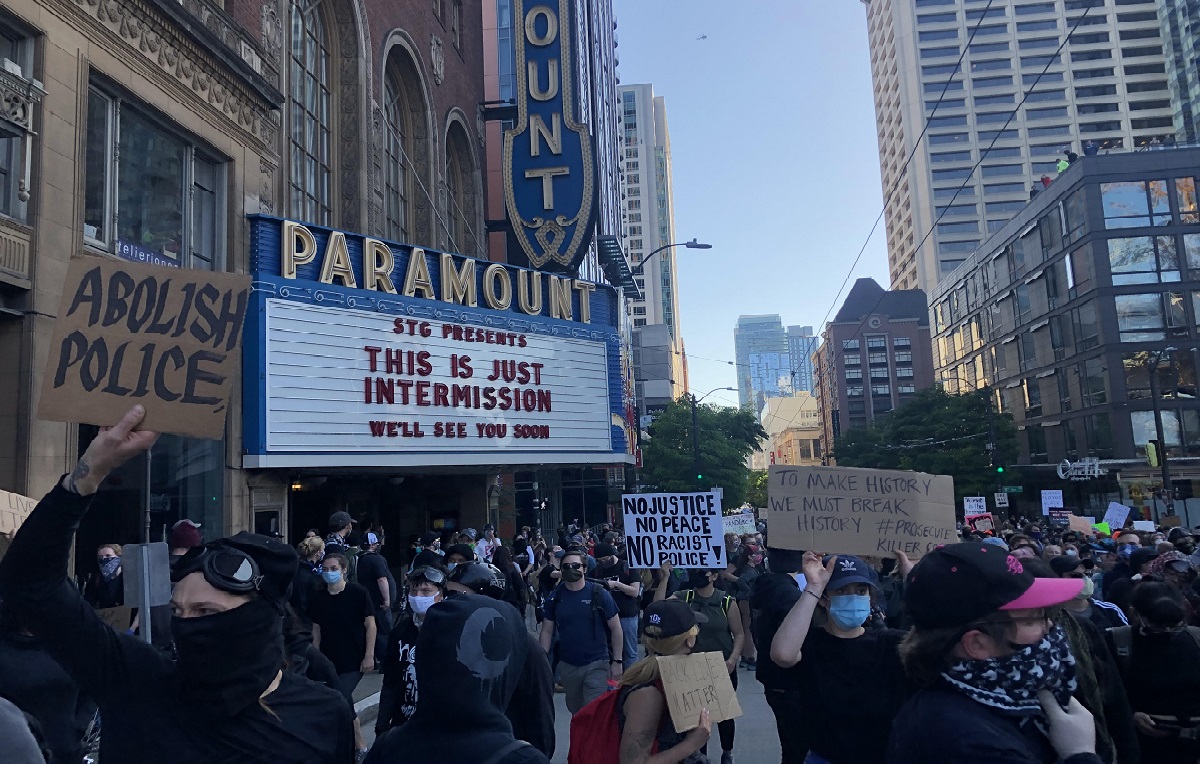On a conference call on Monday, Trump told our nation’s governors that the correct response to the uprisings provoked by the murders of George Floyd, Breonna Taylor, and so many others by police was “domination.” He urged governors to turn to the National Guard, mass arrests, ten-year sentences. “If you don’t dominate, you’re wasting your time,” he said.
After almost four years of Trump’s inflammatory statements, it’s rare that one takes me aback, but this one did. “Dominate.” He said it just hours before police in my East Bay community started tear-gassing young people returning home after a peaceful protest, and arresting en masse those who stayed out past curfew. Oakland police were far from the only ones to have taken Trump’s words to heart: In Washington, D.C., police made mass arrests, kettled protesters, and attacked them with rubber bullets, tear gas, flash bangs, and smoke canisters.
In just a few words, Trump bared the ugly root of his vicious ideology: Divide and dominate. The Trump version is particularly vulgar, but history is filled with examples of those who use their power as a weapon. It’s how corporations crush unions and exploit workers, nativists stir up hatred against immigrants, men pass laws controlling women’s bodies, and racist police and their political allies convince whites they’re safer when more Black people are funneled into a brutal system of prisons and policing.
We constantly see this poisonous ideology as we fight for clean air, clean water, and a stable climate. Our opponents -- major polluters and their servants in politics -- want us divided. They want us to believe that we don’t have to care if communities that don’t look like ours can’t breathe, or can’t access clean water, or are threatened by hurricanes and wildfires. They want us to ignore the coal plant on the wrong side of the tracks, the lack of clean water on Native reservations, the Black neighborhood that keeps flooding.
Trump and his allies attempt to dominate and divide because they think it conveys strength. The opposite is true. There’s a weakness, insecurity, and fear that lies behind Trump’s bluster. He knows that a majority of Americans support the protests, believe that police have a bias against Black people, that the border wall is a destructive and foolish idea, that we are in the midst of a climate crisis, and that he’s a failure as a president. The emperor wears no clothes.
If we allow ourselves to be divided, it’s much easier for our opponents to dominate. We can’t fill public hearings, flood our representatives with calls, or show strength in numbers if we don’t show up for one another. Especially if we are white and financially comfortable, we have an obligation to fight for communities of color and low-income communities whose air and water are threatened by polluting projects.
Even within our movement, there are those who believe that environmentalists should “stay in our lane,” and that we can stay divided and still win. But we’re going up against Donald Trump, Mitch McConnell, the Koch network, and a host of other wealthy, powerful people who will not give up their ability to divide and dominate without a bitter struggle. We’re going to need people from all walks of life and from every corner of this country fighting with us.
Recognizing that there’s strength in solidarity, the Sierra Club works with a constellation of organizations that focus on issues from racial and economic justice to immigration to gender equity. Instead of division, we work together toward a common vision of a brighter future. Instead of domination, we seek self-determination, cooperation, and democratic participation. We act out of love for our homes, our planet, our families, and our communities, with the recognition that, as Cornel West said, “Justice is what love looks like in public.”
We’ll never get any kind of justice -- racial justice, economic justice, or climate justice -- through division and domination. We’ll succeed only by recognizing that our connection is our strength.
